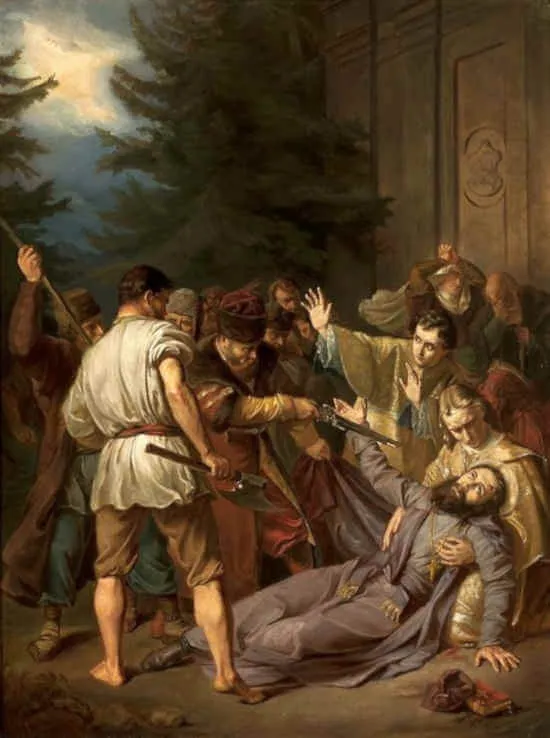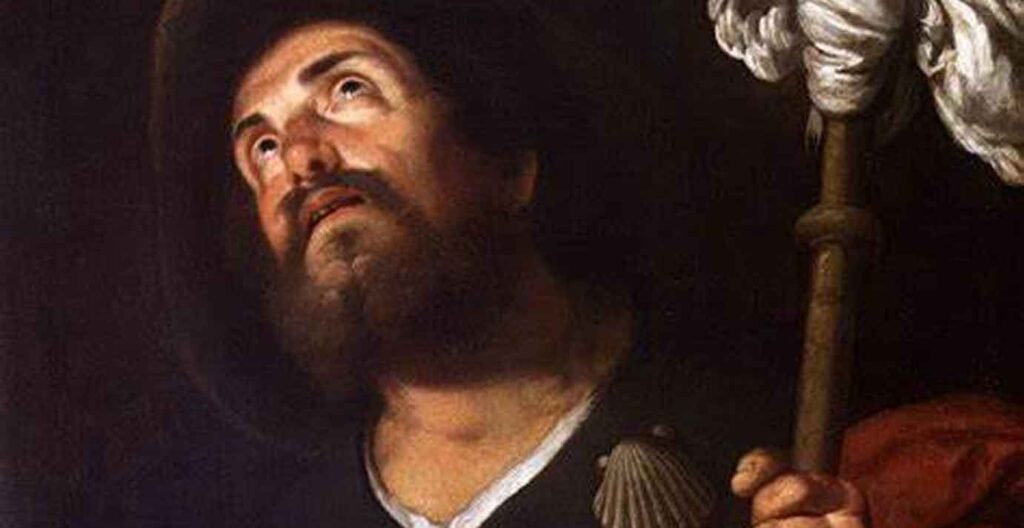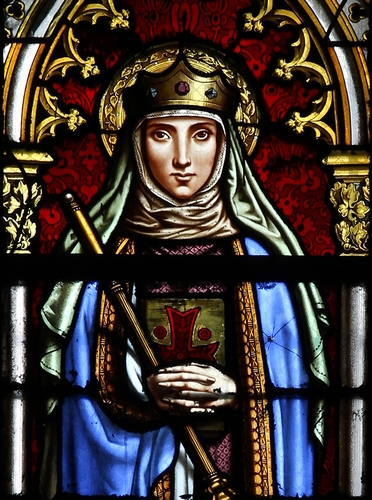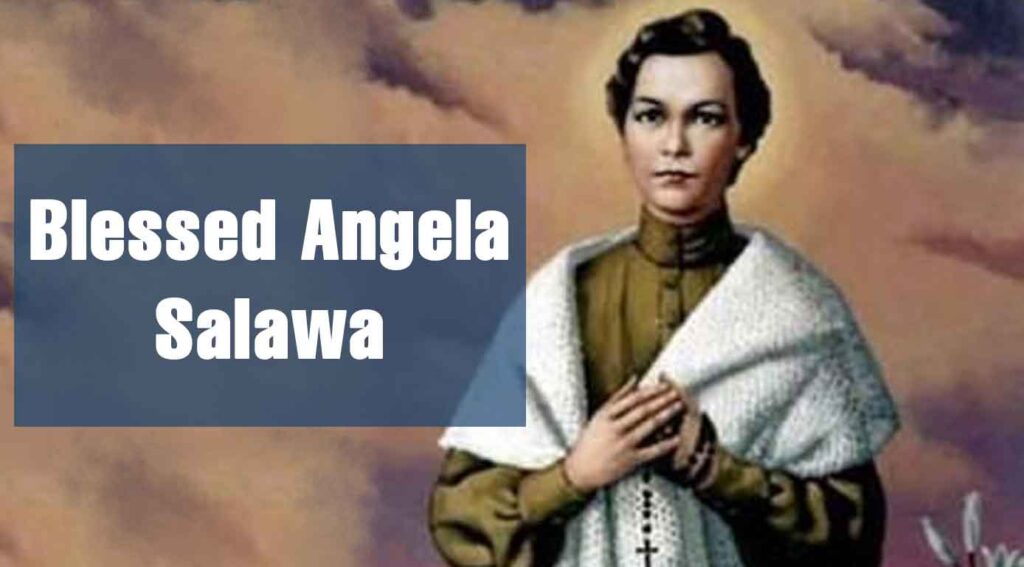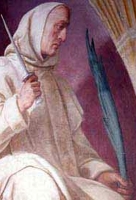1580–1623; Patron Saint of Ukraine; Invoked for the reunification of Eastern and Western Christians; Canonized by Pope Pius IX on June 29, 1867
From the time of the Great Schism in 1054, many Christians in the Eastern (Byzantine) Empire have separated from the pope, creating what is generally called the Orthodox Church. The separation continues, although some of the Eastern Churches have reunited with Rome. In 1439, an attempt was made at the Council of Florence to reunite East and West. It was successful for a short time, but when the Turks conquered Constantinople in 1453, the reunion slowly disintegrated. In 1596, after years of discussions, under an agreement known as the Union of Brest, the majority of Ruthenian Orthodox bishops agreed to reunite with Rome under the pope. In that agreement the Ruthenians professed obedience to the pope as the supreme pontiff, but they were able to keep their Slavic liturgical traditions and celebrate the Byzantine Liturgy, retain married priests, maintain their own canon law and church governance, and hold onto certain theological distinctions within the Creed. Though many Orthodox supported this reunification, many others did not. It was into this time in history that Saint Josaphat, whom we honor today, lived and died for this unity within the Church.
At his birth in the town of Volodymyr, in the Polish-Lithuanian Commonwealth, modern-day Ukraine, our saint was given the name John Kuncevyc. He was baptized into the Orthodox Church, not the Catholic Church, and his parents were faith-filled Orthodox Christians. As a youth, he received a good education and learned the faith well. He was often more interested in praying than playing games. He served at church services, loved the Slavic religious traditions, embraced a life of penance and mortification from an early age, and loved the Divine Office, which he diligently prayed. As a young man, in order to assist his family financially, he worked as a merchant in a nearby city.
In 1604, eight years after his local diocese reunited with Rome, John entered religious life as a monk at the Monastery of Holy Trinity of the Order of Saint Basil the Great in Vilnius. Upon entering, he was given the religious name Josaphat. After five years in the monastery, Brother Josaphat was ordained a Catholic priest in the Eastern Rite and remained at the monastery for the next eight years, becoming prior of his and several other monasteries.
As a monk, he diligently studied the history of the Church, the liturgy, and other documents pertaining to the unity of the Church. He practiced extreme mortifications, and his prayer life grew deep. In addition to his love of the Divine Office and Liturgy, he continuously prayed the Jesus Prayer: “Lord Jesus Christ, Son of God, have mercy on me.” It was later reported by some of his brother monks that he prayed it so often that he could even be heard whispering it as he slept.
Father Josaphat’s prayer and study led him to become a firm supporter of the Union of Brest, and he did all he could to encourage his fellow monks and laypeople to embrace full union with Rome. His reputation as a wise and holy monk spread far and wide, and many came to seek his spiritual advice. He also attracted many young men to the monastery who became monks at his encouragement. He was a spiritual leader, a man of prayer, and a man on a mission of unification. He not only convinced many of the Orthodox holdouts to embrace the Catholic faith, he even drew some who had become Calvinists after the Protestant Reformation. He was so successful that he earned the nickname “Soul-snatcher.”
Father Josaphat’s ministry was so impactful that, in 1617, he was ordained as the Bishop of Vitebsk and, one year later, was elevated to the Archbishopric of Polotsk. This was an important see because tensions remained high, and the faithful, monks, and clergy remained divided about the reunification with Rome. Some feared that they would lose their liturgical traditions to more latinized ones, and others disagreed for theological reasons, but Archbishop Josaphat was convinced that full unification with Rome, while retaining their beloved religious traditions, was the will of God. He zealously devoted the next six years of his forty-three years of life to the cause.
As archbishop, he made the education of his clergy a high priority by issuing a catechism that he instructed them to memorize. He imposed discipline for priestly living, had large meetings to discuss pastoral initiatives, renewed the church buildings, and opposed everyone who opposed unification, including the Grand Chancellor of Lithuania who was overly sympathetic to those who opposed unification.
Within two years of Josaphat’s ordination as Archbishop of Polotsk, some Ruthenian Orthodox factions who refused to embrace unity with Rome secretly gathered and, with the help of the Orthodox Patriarch of Jerusalem, ordained new Ruthenian Orthodox bishops, including an archbishop, setting up a second hierarchical Church. The new Orthodox archbishop began to spread rumors that Josaphat was planning on making the Church fully Latin, throwing out their Slavic traditions. Violence ensued over the next few years, and even clergy battled clergy. Archbishop Josaphat predicted his own martyrdom but remained in the fight for unity.
In 1623, an Orthodox priest led a revolt against the archbishop’s house, which included Orthodox men, women, and children. With stones and sticks they attacked the archbishop’s house, broke in, cornered Josaphat in a room, beat him, slit his head with an ax, shot him, dragged his dead body through the town naked, and threw him into the Dvina River.
Though this might at first appear to be a horrible end to a holy life, God, Who is all-powerful, is able to bring good from evil. In many ways, Saint Josaphat’s martyrdom was a turning point for the Ruthenian Catholics. While divisions remained high, those embracing unity found in Saint Josaphat a martyr and an inspiration. A martyr’s blood is a powerful weapon in the hands of God, and God used his death to help solidify unification with Rome in the hearts and minds of those open to divine grace.
As we honor this saint of Christian unity, ponder the sad reality that so many Christians who profess their faith in Christ remain divided. This is even found within the Catholic Church itself. Use this memorial of Saint Josaphat as an opportunity not only to ponder the painful divisions in our churches and world but also as an occasion to pray for oneness in Christ. Seek Saint Josaphat’s intercession today, and, in imitation of his life, offer your own sacrifices, prayers, and mortification to God, begging for the grace of true and lasting Christian unity.
Source: https://mycatholic.life/saints/saints-of-the-liturgical-year/november-12—st-josaphat-bishop-and-martyr/

